Is That Lump Something to Worry About? A Guide to Breast Cancer Screening
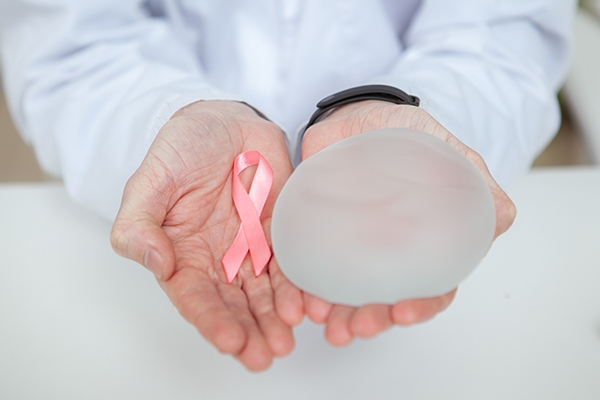
Finding a lump in your breast can be alarming, but there’s no need to panic. While not all lumps are cancerous, it's essential to have them evaluated by a healthcare professional. Regular breast cancer screenings can help you detect abnormalities early and seek appropriate treatment.
Breast cancer screening aims to identify breast abnormalities as early as possible. Early detection provides more treatment options and a better chance of survival. Cancers detected early have a 93% or higher five-year survival rate. The cancer mass tends to be smaller and confined to the breast.
Meanwhile, breast cancer that is found when symptoms have already appeared tends to be larger and more progressed. The size of the breast cancer and how far it has spread are the two most critical factors in predicting the prognosis or outlook for patients with the disease.
The most common symptom of breast cancer is a new lump or mass in the breast. However, some types of breast cancer may have no symptoms or may present other indications in the breast tissue. If you notice any changes in your breasts, it is essential to get further tests. Early detection can significantly improve the outcome of breast cancer treatment.
According to Globocan 2020 data, Indonesia had 396,314 new cancer cases, with 234,511 deaths. The most common cancer among women is breast cancer, with 65,858 cases. Next is cervical cancer, with 36,633 cases.
The American Cancer Society (ACS) recommends that women at high risk for breast cancer have a yearly breast exam starting at age 30.
Your doctor may suggest breast cancer testing if you have symptoms such as:
- A lump in your breast or underarm area
- A sudden change in breast size and texture
- Swelling or dimpling of the breast skin
- Nipple discharge
- Pain in the breast area
In addition, women at high risk for breast cancer should consider getting tested, even if they have no symptoms, as a precaution, such as:
- Women over 50 with dense breast
- A family history of breast cancer
- Having received radiation therapy
- Specific gene mutations (like BRCA1 and BRCA2)
A person is also at higher risk of breast cancer if they have higher levels of the hormones estrogen, progesterone, or testosterone. The risk level increases if you:
- Started menstruating before age 12 or went through menopause after 55.
- Having not given birth or had your first child after age 30.
- Do not breastfeed.
- Have either used birth control pills in the last ten years or undergone hormone replacement therapy (HRT), which only slightly increases the risk.
- In addition to self-examination (SADARI) and SADANIS (Clinical Breast Examination), sometimes breast cancer requires further examination.
Here are some advanced tests for breast cancer screening:
1. Mammography or breast X-ray
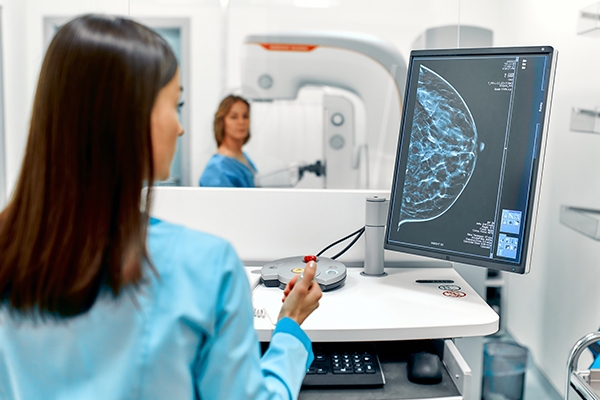
Mammography, an imaging procedure using low-dose X-rays, can create detailed images of breast tissue. Thus, mammography can diagnose early various abnormalities, such as cancer, tumors, cysts, or calcium deposits, up to ten years before symptoms manifest. However, mammography can not detect all cancers at the first screening.
2. Breast ultrasound
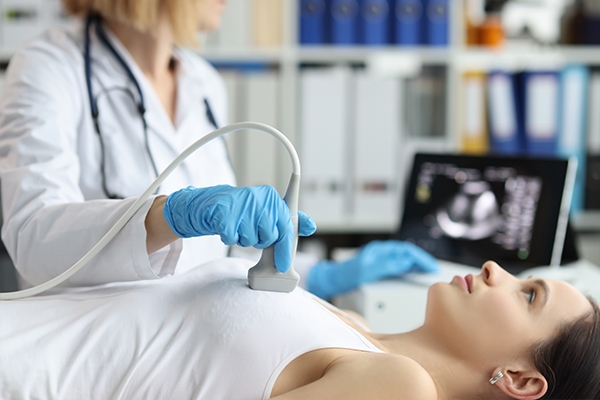
An ultrasound uses sound waves to create images of structures inside the body. A breast ultrasound might give further information about a breast lump. For example, an ultrasound can determine if the lump is a solid mass or a fluid-filled cyst. Your healthcare team uses this information to decide which tests you should have next.
3. MRI
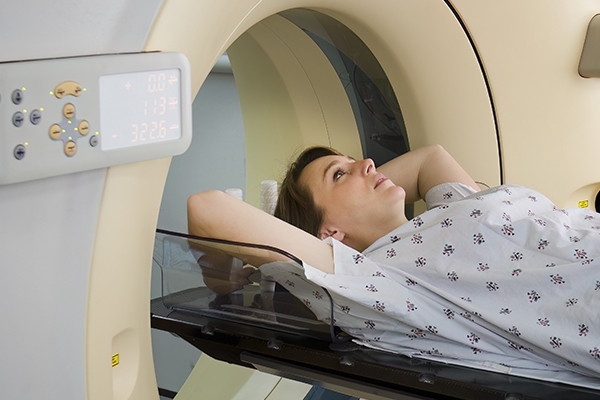
An MRI machine uses a magnetic field and radio waves to produce images of the inside of your body. A breast MRI can give more detailed breast images, which can be used to check for cancer in the affected breast or to look for cancer in other breasts. Before having a breast MRI, the healthcare team will inject you with a dye. This dye helps the tissue clearly in the images.
4. Biopsy
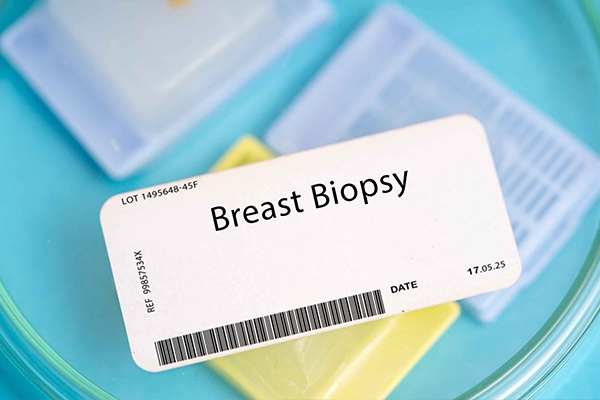
A biopsy is a procedure used to remove a tissue sample for laboratory analysis. The sample is taken by inserting a needle through the skin into the breast tissue, guided by images created by X-rays, ultrasound, or other forms of imaging. Often, the healthcare team will place a small metal marker at the sample location to assist them in monitoring the area.
The test results will help determine the cancer type and extent of cancer spread, as well as whether the cause of the cancer is a specific gene mutation.
Staging breast cancer
After your healthcare team diagnoses breast cancer, you may require additional tests to assess the cancer's severity, also known as the stage.
Complete information about the stage of your cancer may not be available until you have breast cancer surgery. Tests and procedures used to diagnose the stage of breast cancer can include:
- Blood tests, such as a complete blood count, and tests to determine how well your kidneys and liver are working.
- Bone scan.
- CT scan.
- MRI scan.
- A positron emission tomography, or PET scan.
Only some require all these tests; your healthcare team will choose the right ones based on your situation.
Breast cancer stages range from 0 to 4. A lower score indicates that the cancer is less advanced and more likely to be cured. Stage 0 breast cancer is cancer that is in the breast ducts, has not spread, and has not invaded breast tissue. As the cancer spreads to the breast tissue and worsens, the stage progresses. Stage 4 breast cancer indicates that the cancer has spread to other areas of the body.
As a result, routinely performing breast self-examination is critical to knowing breast health. Routine checkups can give peace of mind, and early cancer detection can save lives.
If you see any abnormalities in your breasts and want to do further examination, click WhatsApp or visit the GWS Medika Clinic, a health clinic in Jakarta.



